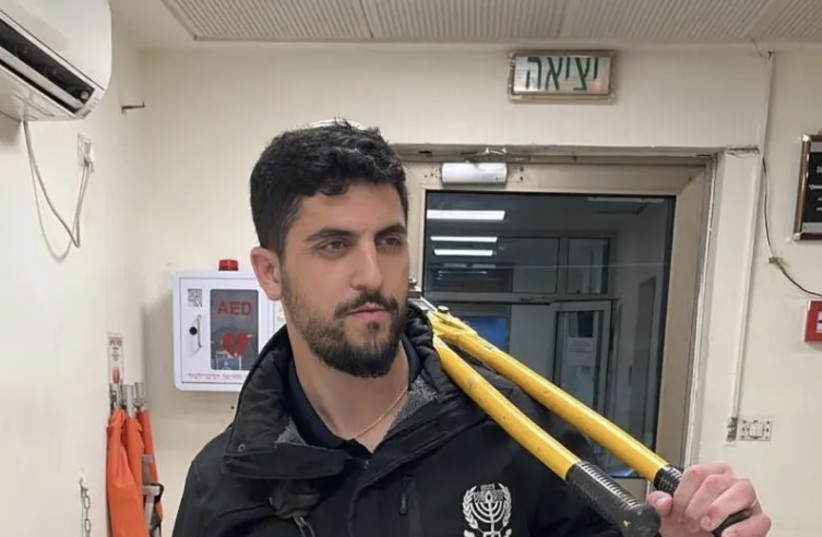A tiny porcupine, estimated to be about a month old, was found wandering alone near the Knesset.
Knesset guards who were inspecting the perimeter found the baby porcupine that had been attacked by several crows and realized that they had to rescue her and transfer her immediately to veterinary care so that she would survive the premature separation from her porcupine mother.
"During a patrol on the Knesset fence, we received a report of a small porcupine running on the fence, injured as a result of a crow attack," said one of the guards Major Chai Salem Lochem. "In a short time, we arrived at the meeting point, identified the situation, and reported to the security center and the police station that we were collecting her, and in the meantime, they contacted the birding center next to the Knesset."
Sergeant Chai said that the team found an empty crate into which they put the porcupine with due care.
"Meanwhile, we tried to give her a piece of cold watermelon and water, but she was too scared to eat. In view of the fear that she would not survive the attack and the distance from her family, we immediately transferred her to the Jerusalem Bird Research Station of the Society for the Protection of Nature, and the manager of the station, Yotam Bashan, transferred her to the Safari Hospital for further treatment."
The porcupine, who received the name Dora from Sergeant Chai, arrived at the safari hospital weak and dehydrated, and the vet's examination found a large wound on her back that was apparently caused by the crows' attack.

The veterinarian also stated that, contrary to popular opinion, porcupines do not shoot their spines.
"They can sharpen their spines in times of danger as other mammals do. Their trick when a predator is chasing them is to simply stop suddenly so that the surprised predator is unable to stop, gets stuck in the porcupine's spiky backs and sometimes some of the porcupines get stuck in it and stay on it. In the case of the porcupine cub, her spines are still soft (like a baby's hair) and could not protect her from the crows."
In the meantime, until she is fully recovered, Dora will drink her breast milk substitute with care, while the handlers gradually introduce her to solid foods that are part of her future diet. It is unclear if she will be able to return to the wild since with porcupines, parenting is extremely important and there are no good ways to teach her how an independent porcupine behaves, except by finding adoptive porcupine parents for her. Currently, there are none and the Safari Hospital team is making every effort to find her a suitable solution.
'Working to ensure the safety of the many species near the Knesset'
The Indian porcupine is the largest rodent in the continent of Asia and, of course, also in Israel. it gets its name because of the spurs that cover its body and protects it from predators.
Knesset officer Superintendent Yuval Chen praised the "work of the warriors", who, as part of their work, often meet a host of animals that surround the Knesset, which is considered one of the greenest parliaments in the world.
"Alongside the advanced security operations, we are working to ensure the safety of the many species of wild animals that live near the Knesset. I am happy that the warriors and the medical team at the safari were able to ensure the safety of the little porcupine Dora. I hope that in the near future, Dora will be able to return to nature and live safely near the Knesset for many years to come."
